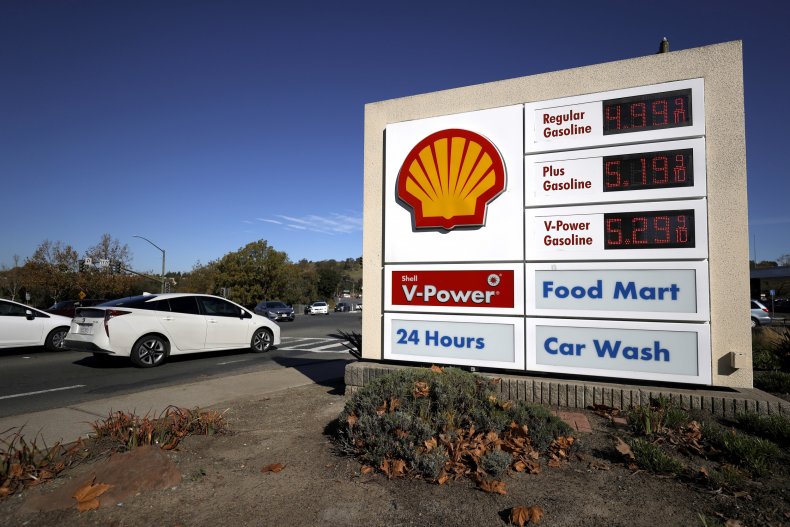ANDREW STANTON
While President Joe Biden has been expected to announce plans to release oil from the Strategic Petroleum Reserve as Americans continue dealing with high gas prices, no decision has yet been made.
The United States has been considering eventually releasing more than 35 million barrels, Bloomberg reported. The release could be done along with other countries including India, Japan and South Korea.
In a statement to Newsweek, however, a National Security Council spokesperson said that no decision had been made.
"No decision has been made. I would note that we've been saying for weeks we are talking with other energy consumers to ensure global energy supply and prices do not imperil the global economic recovery. The conversations are ongoing and we consider a range of tools for if and when action is needed," the statement said.
SCOOP: Biden is preparing to announce a release of oil from the nation's Strategic Petroleum Reserve in concert with several other countries as soon as tomorrow. Will be an unprecedented effort to tame prices after OPEC+ rebuffed US.@annmarie @AriNatter @jendlouhyhc— Jennifer Jacobs (@JenniferJJacobs) November 22, 2021
Gas prices averaged $3.409 per gallon across the country on Monday, according to AAA. In California, the average soared to an even higher $4.706 per gallon.
The cost has decreased slightly from November 15, when it averaged $3.415 per gallon. But in November 2020, gas prices averaged only $2.111 per gallon, according to AAA.
Lawmakers previously called on Biden to consider releasing barrels from the Strategic Petroleum Reserve in a letter sent to the president November 9.
"We ask that you consider all tools available at your disposal to lower U.S. gasoline prices," a group of Democratic senators wrote. "This includes a release from the Strategic Petroleum Reserve and a ban on crude oil exports. We hope you will consider these tools and others to make gasoline more affordable for all Americans."
Tapping into the oil reserve would be less risky than a ban on crude oil exports, but would only provide a short-term benefit, Ben Cahill, a senior fellow at the Energy Security and Climate Change Program at the Center for Strategic and International Studies, told Newsweek earlier in November.
The reserve totaled more than 600 million barrels as of November 19, according to the Office of Fossil Energy and Carbon Management.
In an attempt to curtail rising the gas prices, the Biden administration previously attempted to pressure the Organization of the Petroleum Exporting Countries (OPEC) to pump significantly more oil, but the organization and its allies have rebuffed the pressure, instead opting for cautious monthly increases in oil production, the Associated Press reported.
In October, Saudi Energy Minister Abdulaziz bin Salman defended OPEC+'s decision, instead pointing to low inventories, refinery outages from Hurricane Ida and high ethanol prices as the cause of high gas prices in the U.S.
The Biden administration has also asked other countries, including China, India and Japan, to consider releasing crude stockpiles in what has been seen as a challenge to OPEC, Reuters reported.
Many Americans have reported frustration surrounding gas prices. A survey conducted by GasBuddy found that 51 percent of drivers said they would not drive for Thanksgiving due to the cost of gas. In total, 32 percent of people are expected to drive for the holiday—down from 35 percent in 2020.
 President Joe Biden is expected to announce plans to release oil from the Strategic Petroleum Reserve. Above, gas prices are seen at a Shell station in California, the state with the highest average gas prices.JUSTIN SULLIVAN/GETTY IMAGES
President Joe Biden is expected to announce plans to release oil from the Strategic Petroleum Reserve. Above, gas prices are seen at a Shell station in California, the state with the highest average gas prices.JUSTIN SULLIVAN/GETTY IMAGES
No comments:
Post a Comment